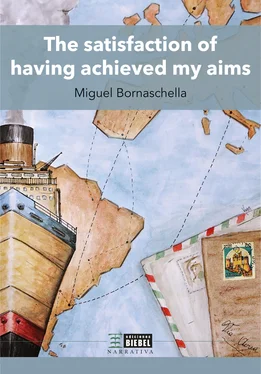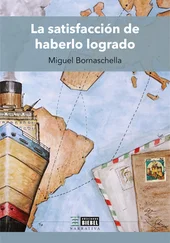This town was, like many others in Italy and in Europe, crossed by war leaving some memories which were transmitted from generation to generation because due to the accumulation of damages it was impossible to keep them in silence. The narration which was quite plain and natural under the sight of the children and grandchildren took the dimension of the tragedy once more, and though it was obvious, it had not been easy to bear. The common place to say that the suffering had been terrible, was not enough to show the real dimension, the scenery, the length in time and the irremediable consequences.
In the First World War my father lost his father when he was six years old. Not long ago I myself was able to regain some pieces of information. I got a copy of his Certificate of Decease: Angelo Bornaschella died on the 19 th of October in 1918, just some months before the end of the war due to a bronchitis which turned into a general infection. He died in the Field Hospital Number 56, in Gubbio, a mountainous region in Zangolo. I also knew that his registration number was 20.562 and he had served in the Second Company of the Brigade of Messina.
Sometime later my father’s mother married my grandfather’s brother, called Angelo. By those days this form to reorganize the families was something natural and necessary. Among some other natural intentions, the main one was to protect the woman, take care of her children and keep the family. Under the protection of this new marriage and new love, my father had three more brothers and one more sister … But not all the new familiar organizations had the same fate.
In some houses fatal stories were heard, with epilogues difficult to be told. The man who went away for war, during the First or the Second, left his good will to the convenience and caprice of fate. Hope was missed when the family did not receive any news, and then his location seemed to be like the wind that blows and goes somewhere, without knowing where… He might have been taken as prisoner and be working in that state in another country, or be dead without a tombstone, or could have lost his mind and not remember the way to come back home. But if it happened that God’s mercy helped him come back, after having left for so many years, being suspended in his wife’s and children’s oblivion, his old house was no longer his house because his children would be sharing the table with the new children his wife might have had, or his wife was no longer his because since he did not exist any longer, she had become the wife of someone else who might have been his neighbour in the past, before the war had put them all on the same stairs step of the tragedy.
The memories of my mother also gave me the details to understand how much and the way the resignation of the people had fitted in their souls. During one of the advance posts of the German soldiers, an uncle of my father’s together with other neighbours in the town, tried to repel their enemies by throwing pieces of stones at them from the highest post in the mountain. But instead, they were repelled by the German machine guns. The splinters hurt him, but with a quick treatment and with his still bleeding leg, he was able to come back to the improvised shelters in the wood and the mountains, until some days later the Red Cross took him away to assist him in better conditions due to the serious infection he had. The fact that he was not in the refuge for more than seven months was also taken as some kind of resignation and there was no surprise or fright, there was no difference between his presence and his absence during those days… My grand uncle came back to the shelter and his own life went on as if the gap in the history had never existed, but not for the indifference or lack of affection, but for the only and clear feeling of helplessness and pain of everybody.
When the German soldiers took the decision to attack, the town was filled with fright, running from one side to the other looking for shelter in the holes and caves in the mountains. During one of those escapes my brother Angel informed my father that he had lost his left shoe. My father wanted to recover it, but it would have been easier if my brother had mentioned it as soon as it had happened, three kilometers before. The mission to recover the shoe was useless, suicide, so the unfortunate and poor Angel lived the following six months with a piece of cloth around his foot and ankle tied with some ropes, replacing the lost object.
Once the Second World War was finished, apart from the damages seen and those which could not be seen, there remained other consequences more concrete and less painful. Due to the advance of the American troops towards the north, perhaps because the Germans needed to rush away or because they might have looked for a safer place, during their retreatment, they left different things along their way. After the calm had come back and the whole town and neighbourhood was no longer occupied by the troops of one or the other side, pieces of their possessions were found spread everywhere. It was very common to find pairs of boots, dirty shirts, great quantities of missiles which astonished everybody because they were kept in cloth bags, useless tyres, pieces of jeeps and trucks for the troops and even a war tank. The pieces of iron were picked up and sold as scraps in different places in the country. By doing this, people could manage their economic situation in some way. The rubber was used to make a handmade kind of shoe called “scarponi”. They were real certificates of poverty, but since there was not another thing, they became quite useful. People’s legs were covered from feet to knees with a piece of cloth made of linen. Then the pieces of rubber, well cut according to the size of the foot, were fitted leaving an edge with small holes and finally some leather strings were passed through them. They were the usual strings of the “modern age”, with the same idea this continued up to the knees. Those who found tyres of motorbikes were luckier because since the rubber is narrower, they fitted the feet “anatomically”. Apart from this, nobody cared for having them brushed and polished or think which one was for the left or the right foot.
Once, my father together with a friend found a tyre. It was inflated and even had the rim. Ready to make their own “scarpony” they went against it with the tool they had in their hands. They tried to damage it with an axe and as if the tyre had been alive it made them both bounce. They did not surrender, with the axe and taking some other tools, could hurt it until it exhaled the air and were able to give it the desired use.
My father, once, found a big military overcoat and gave it good use during the cold winter. After that he was fortunate enough to come across a semiautomatic gun, which I consider, according to his stories must have been of calibre 45. By the aspect and quality of the gun he assumed, it had belonged to an officer of high rank in the army. My father knew how to use it and proudly showed it to my mother and taught her how to use, too. They did not have to worry for the bullets because they could be found easily… My parents kept this incidental but fortunate finding as a secret, neither did they show it nor did they speak about it, but somehow this secret was spread and it was soon well known the fact that there was a sophisticated gun at home and my family had it. It was always in a safe hidden place inside a hole made in the wide walls of the house. When my father migrated to Argentina, my mother was in charge of it and of the big overcoat. By those days since there was a shortage of food and goods, it was quite common to see acts of banditry, people who stole fruits and vegetables from the fields, and though it could have been something small, it was actually serious due to the scarcity of those times. To carry out these acts of banditry, these petty thieves stayed longer in the fields or sometimes remained during the night in the nearby areas until it was the right moment to go into the farms. My mother would come back to her piece of land from time to time with the big overcoat on and the semiautomatic gun. She would shoot some bullets into the air breaking the peace of the place but, warning by doing this, anybody who could have had the wrong idea of taking something by mistake… The echo of the shots was heard and had the impact searched because everybody knew who carried the gun and who wore the big and heavy overcoat. The chief visited our house many times and asked my mother for the gun. He wanted her to give it to him, but she always denied its existence and the chief would leave our home, accepting the refusal with respect. But not only was the chief the person who respected her, when the women in the town saw her with the heavy coat, greeted her in a special way and even more, men did. Some years later, after our departure to Argentina, some remodeling was made in the house in Via Piano 4. Then one of the walls was knocked down and the famous gun appeared. This event was reported and the chief was able to finish the case after a long, long time. Those who were there said that the chief, with the gun in his hand and with a grin in his face, said: “At last ... after having sought for it for so long”.
Читать дальше












